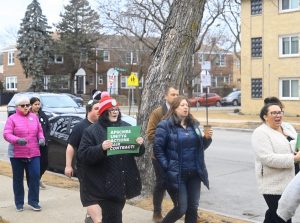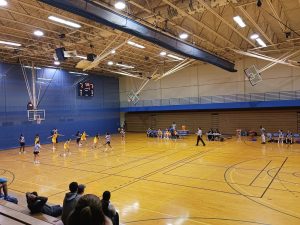NEIU Physics Department to Begin Tackling Dark Matter
October 17, 2018
NEIU is contributing in the tackle of discovery in evidence on dark matter, the “big unsolved problem” in physics. The National Science Foundation (NSF) recently awarded a grant to NEIU to help be part of the PICO project.
The $169,858 three-year grant will help NEIU students and faculty create and maintain software in order to run experiments that will search for dark matter.
The project uses a bubble chamber experiment that will potentially “directly detect dark matter.” Dr. Orin Harris, a Physics Professor at NEIU, helped NEIU be part of the PICO project.
“A large percent of matter is a type we can’t see,” Harris said.
His team of students and faculty will help develop a “software that helps run the detection of dark matter and allows us to view data coming from experiment” of the PICO bubble chamber.
The PICO project is a “world leading experiment in search for experimental signs of dark matter…Students at NEIU will have the opportunity to work with scientists from all around the world in disentangling backgrounds from our data,” Carsten Krauss a experimentalist from PICO said.
Dr. Paulo Acioli, NEIU physics department chair, said the NSF receives “a number of calls for proposals” from different schools and institutions every year.
Harris’ “enthusiasm for the dark matter project” led to his proposal to the NSF for funding.
Acioli said the funding for students from outside sources is the “ideal way, because for this big research project, the budget is well beyond what we usually have here,” and in the past a “lot of the funding came from The Student Center for Science Engagement (SCSE).”
Other schools received a piece of the large grant, including Penn State and Indiana University. Each school is “contributing on building the pieces” of the bubble chamber experiment Harris said.
NEIU student Adam Provost worked with Dr. Harris and a number of other students on the project. He said this grant will “provide students an amazing opportunity to work on an international physics collaboration from here at NEIU.”
Provost encourages his fellow students that if they find this research “interesting, but feel intimidated by how mysterious ‘dark matter’ sounds,” students should set up a meeting with Dr. Harris.
“I transferred in from community college with zero research experience and I was able to work with Dr. Harris this summer… It will be challenging, but Dr. Harris will make it attainable and I can attest that it is incredibly rewarding and absolutely worth the effort.,” Provost said.
This isn’t the first time Dr. Harris gave scientific opportunities for students. Last year, he took “students to the SNOLAB to visit the bubble chamber that is two miles beneath the surface of the earth,” Acioli said. “This is a cutting-edge experiment that students could be involved in at NEIU.”
Acioli said, “Having a direct measurement and evidence of dark matter will be big step” for the future of NEIU. Students can be a part of large scale experiments.
“There is competition in science experiments and we are one of them,” Harris said.







